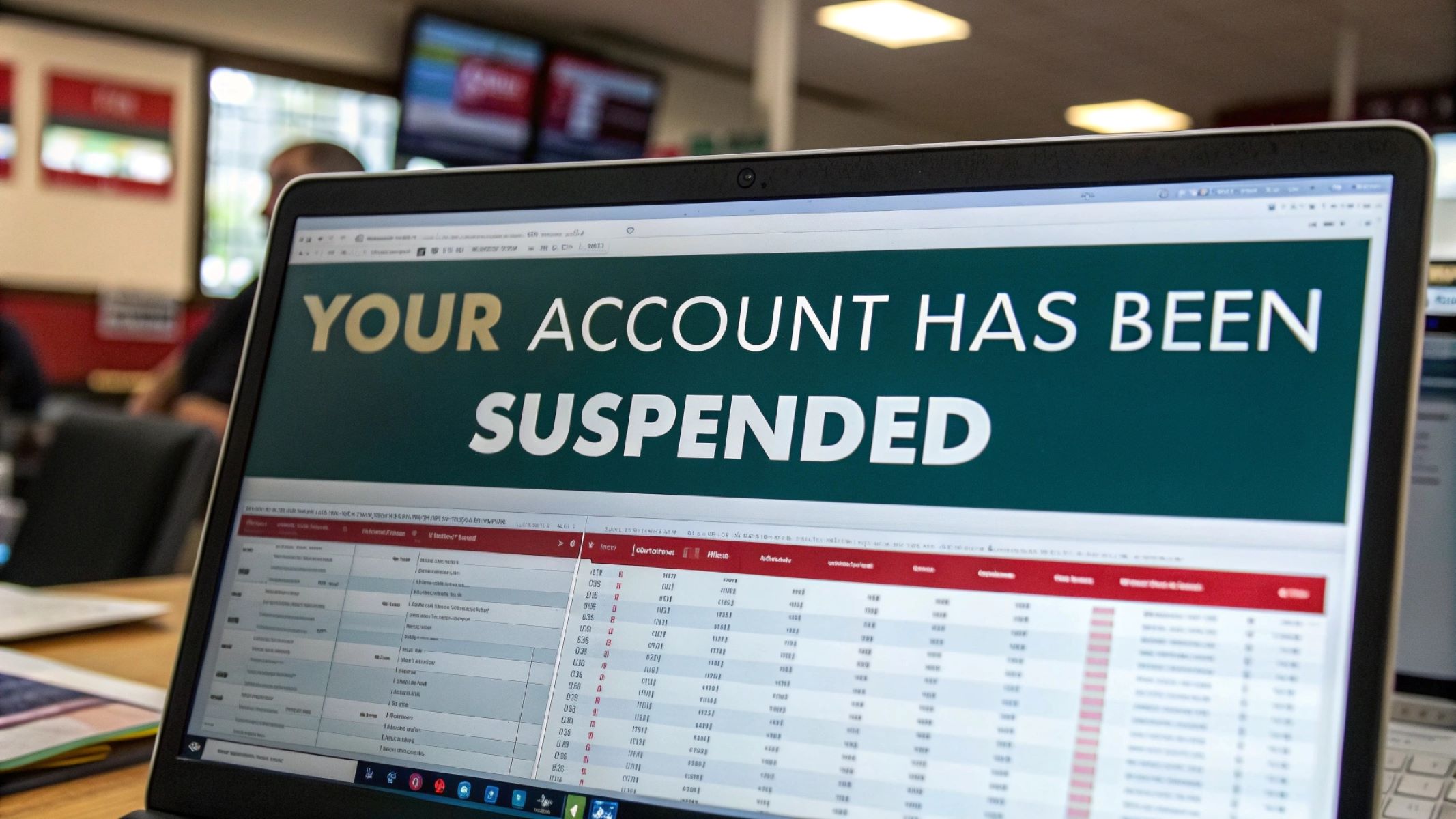Alright, let’s clear the air. Betting bots are just software programs designed to place bets automatically for you. Think of them as your digital assistants in the online gambling world. They analyze stats, monitor odds, and can even execute entire betting strategies—faster than any human could ever hope to. Imagine you’re watching a football match, but your bot already placed a value bet before the odds changed. That’s the whole point. Speed, efficiency, and consistency. But here’s the kicker—not all bots are welcomed on every platform, especially in South Africa.
Why Some Bettors Swear by Bots
There’s no denying that betting bots have become quite the buzz in the gambling community, and for good reason. Many bettors find them appealing because bots take the emotional aspect completely out of the equation. We all know how tempting it can be to chase losses or get overexcited after a big win, which often leads to poor decisions. Bots, on the other hand, follow strict algorithms and don’t let feelings interfere with their betting choices. This level-headed approach can help keep bets consistent and avoid the common pitfalls of impulsive gambling.
Another huge advantage bettors see in bots is their ability to operate around the clock without ever getting tired or distracted. While a human bettor might need sleep, breaks, or simply lose focus, a bot can execute high-frequency strategies nonstop. This constant presence means it can spot and place bets on opportunities instantly, often beating other players to the punch. In fast-moving markets like live sports betting, that speed and consistency can make a big difference.
Bots are also incredibly fast at processing huge amounts of data and analyzing patterns. What might take a human minutes—or even hours—to sort through, a bot can evaluate in seconds. This means bots can monitor multiple games, odds, and betting markets simultaneously, identifying value bets or arbitrage chances that might otherwise go unnoticed. For bettors who want to stay ahead of the curve, this is a powerful edge.
However, as attractive as all this sounds, it’s worth pausing to ask if such “superior” betting tools are truly effective or even allowed on South African platforms. While bots might be a disciplined gambler who never sleeps or makes mistakes, South African bookmakers often have strict rules against their use. So, while many bettors swear by bots for their speed and emotionless nature, the reality of their legality and detection risk means that the appeal might come with serious downsides in the South African betting landscape.
A Quick Glance at South Africa’s Betting Scene
| Aspect | Description | Regulatory Body | Legal Status | Impact on Betting Bots |
| National Gambling Board | Oversees gambling regulation nationwide | NGB | Governs licensing and compliance | Enforces rules that platforms must follow |
| Sports Betting | Legal and widely regulated | Provincial Gambling Boards | Fully legal when through licensed operators | Bots often prohibited by platform terms |
| Online Casino Gaming | Mostly illegal unless licensed | NGB & Provincial Boards | Restricted, with many sites unlicensed | High risk using bots on unlicensed sites |
| Licensed Bookmakers | Platforms approved by regulators | NGB & Provincial Boards | Operate legally under strict conditions | Bots banned or closely monitored |
| Offshore/Unregulated Sites | Sites outside South Africa’s jurisdiction | None | Illegal or gray market | Using bots here carries significant risk |
Is It Legal to Use Betting Bots in South Africa?
When it comes to betting bots, the first question on every bettor’s mind is: Is it legal to use them in South Africa? The answer isn’t as straightforward as you might hope, so let’s break it down in detail.
- There is no specific law in South Africa that explicitly bans the use of betting bots. This means that, from a purely legal standpoint at the government level, using automated betting software is not outright illegal or criminalized.
- Despite the lack of direct legislation against bots, the legal landscape is heavily influenced by the rules set by licensed betting platforms themselves. Each platform operates under licenses granted by regulatory bodies like the National Gambling Board (NGB) and provincial gambling boards, and these licenses come with strict conditions.
- Most licensed sportsbooks and betting sites in South Africa include explicit clauses in their Terms and Conditions that forbid the use of automated betting tools or bots. This is primarily to ensure fair play and to maintain control over betting activity on their platforms.
- When you agree to these Terms and Conditions during registration, you are contractually bound to follow the rules, including any bans on bots or scripts. This means that even if the government doesn’t regulate bots specifically, the platforms can enforce penalties if they catch you using them.
- The penalties for breaking these platform rules can be severe: accounts can be suspended or permanently banned, winnings can be confiscated, and in some cases, bettors may be blacklisted from other sites affiliated with the same operators.
- In practical terms, the platforms act as the gatekeepers, using sophisticated technology to detect unusual betting patterns that indicate bot usage. This means that while the government might not be hunting bots, the platforms are actively trying to stop them.
- Using bots on unregulated or offshore betting sites can be a different story. Since these sites don’t fall under South African jurisdiction, the rules can vary widely. However, this comes with increased risks, including lack of player protection, potential scams, and difficulties withdrawing winnings.
- Ultimately, even if it’s not illegal per se, using betting bots on South African licensed platforms is almost always against the rules. So, if you choose to use a bot, you’re gambling with your account’s safety and your money.
- It’s also important to remember that regulators and platforms are constantly evolving their detection methods, meaning what might slip by today could lead to consequences tomorrow.
- Many bettors underestimate the risk because they think “bots are just software,” but in reality, the betting sites see bot usage as a form of cheating or unfair advantage.
- In conclusion, while South African law doesn’t directly ban betting bots, their use is generally prohibited by platform rules, and breaching those rules can lead to harsh consequences for players.
Terms & Conditions: The Small Print That Matters
It might sound dull, but those tiny links labeled “Terms & Conditions” at the bottom of your favorite sportsbook’s website are actually where the real action happens. This is the place where the platform spells out the rules you must follow to keep playing. While most bettors skip over this fine print, ignoring it can lead to serious consequences—especially when it comes to using betting bots. These rules are designed to protect the sportsbook’s interests and ensure fair play for all users, so violating them can quickly get you into hot water.
Many South African-licensed sportsbooks are very clear in their Terms & Conditions about the use of bots or any form of automated betting software. For example, Hollywoodbets explicitly forbids any form of bot use and makes it clear that accounts caught violating this rule face immediate suspension. Betway South Africa takes an even tougher stance, not only banning automated scripts but also permanently banning offenders and confiscating their winnings. Sportingbet South Africa similarly requires bets to be placed through genuine human interaction and will void any winnings obtained through suspected automated activity.
The message across these platforms is consistent and unambiguous: using bots is against the rules, and if you get caught, the consequences are severe. It’s not just about losing access to your account; it’s also about losing any money you might have won using unfair means. These policies act as a strong deterrent because sportsbooks invest heavily in technologies that monitor betting patterns to detect bots. They don’t need to catch you in the act manually—algorithmic systems spot suspicious behavior quickly and act accordingly.
So, while the Terms & Conditions might seem like legal mumbo jumbo at first glance, they carry real weight. If you value your betting account and want to keep playing safely on South African platforms, you need to respect these rules. The bottom line is simple: if you try to use a bot, you risk getting banned and losing your money. It’s better to play by the book than risk being shown the door.
How Betting Platforms Detect Bots
| Detection Method | What It Looks For | Why It Matters | Example | Platform Response |
| Repeated Inhuman Speed | Bets placed too quickly and consistently | Humans can’t react this fast consistently | 10 bets placed every 2 seconds nonstop | Flagged for bot activity, possible suspension |
| 24/7 Non-Stop Betting | Continuous betting without breaks | Humans need rest, bots don’t | Betting activity for 48+ hours without pause | Account review or automatic block |
| Suspicious IP Addresses | Use of proxies, VPNs, or changing IPs | Bots often mask location | Access from multiple countries in short time | IP blacklisting, further investigation |
| Identical Bet Patterns | Same bet types and amounts repeatedly | Indicates scripted betting | Placing the same exact accumulator daily | Suspicion raised, manual review triggered |
| Lack of User Interface Interaction | No mouse movement or clicks, automated input | Human interaction usually shows such signs | Bets placed without normal UI behavior | Account frozen pending verification |
Types of Betting Bots You Might Come Across
When it comes to betting bots, not all of them are the same. Some serve as useful tools, while others cross the line into cheating territory. Here’s a detailed list of the most common types of bots you might encounter in the betting world:
- Value Betting Bots: These bots scan multiple betting markets to find bets where the odds are higher than the actual probability of the event happening. They then place bets on these “value” opportunities, aiming to generate consistent profit over time. These bots operate within a medium risk level because they rely on legitimate value spotting but can still be flagged if they bet too frequently or automatically.
- Arbitrage Bots: These are designed to exploit differences in odds offered by various bookmakers. By placing bets on all possible outcomes across different platforms, they guarantee a profit regardless of the result. Because arbitrage bots take advantage of pricing inefficiencies, many bookmakers consider their use high risk and actively work to detect and ban accounts using them.
- Matched Betting Bots: These bots help users take advantage of promotional offers and bonuses from sportsbooks. They automatically place the necessary bets to “lock in” bonus value while minimizing risk. Matched betting bots are generally seen as medium risk because while they use legal promotional offers, their automation may violate platform rules.
- Casino Bots: These automate gameplay in casino games like roulette, blackjack, or slots. Their goal is often to play continuously or follow specific betting patterns to maximize wins. Casino bots carry a very high risk because they often violate casino terms and can lead to immediate account bans and loss of funds.
- Trading Bots: Focused on in-play betting, trading bots place bets based on real-time changes in odds. They monitor live events and adjust bets quickly to capitalize on fluctuating probabilities. Their risk level is medium because they follow legitimate trading strategies but can be detected if used excessively or without human intervention.
Sports Betting Bots vs Casino Bots
When it comes to betting bots, there’s a clear difference between those designed for sports betting and those made for casino games. Sports betting bots have become fairly common and are often seen as tools to help bettors execute complex strategies like arbitrage, value betting, or line shopping. These bots scan multiple bookmakers, analyze odds, and place bets automatically to capitalize on market inefficiencies. While not exactly welcomed everywhere, sports betting bots operate in a space where strategy and timing matter a lot, and some players view them as just another way to level the playing field.
Casino bots, however, are a different story altogether. These bots target casino games that rely heavily on Random Number Generators (RNG), such as roulette, slots, and blackjack. Their purpose is often to exploit or manipulate the game mechanics, aiming to increase the player’s chances in ways that the game designers never intended. Because of this, casino bots are universally frowned upon by both operators and regulators. Using them is often considered outright cheating and is met with swift and severe penalties like account bans and confiscation of winnings.
The reason for this stark contrast lies in how the games operate. Sports betting is about analyzing external factors, statistics, and odds offered by bookmakers, which can be legitimately exploited using advanced software. Casino games, however, are designed to be random and fair to all players, so any attempt to automate or manipulate the outcome is seen as a direct attack on the integrity of the game. This makes casino bots much more controversial and risky to use compared to sports betting bots.
In short, while sports betting bots may raise eyebrows and often violate platform rules, casino bots practically shout “cheater” at the top of their lungs. The consequences for using casino bots are generally more severe, and the industry as a whole has much less tolerance for them. Anyone considering automated betting tools should understand these differences clearly before diving in.




